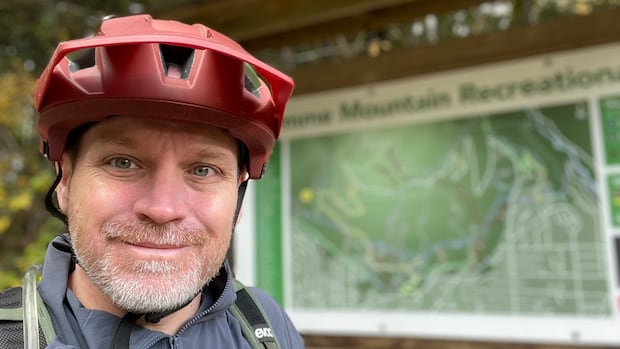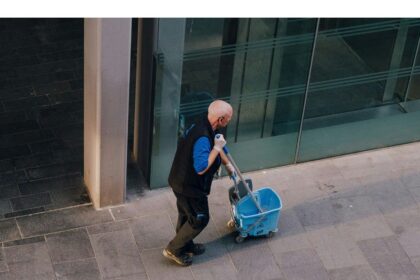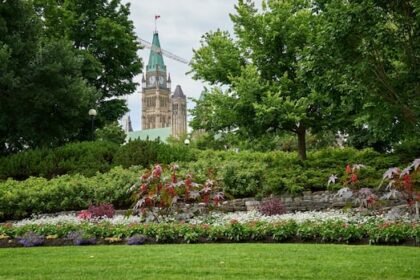New Brunswick·NewDespite the closure of Crown land and restrictions on outdoor activities, a local tourism association and a trail organization say wildfires haven’t really hurt New Brunswick’s tourism industry. Trans Canada Trail CEO points to alternative outdoor attractions New Brunswickers can enjoyKatherine Del Salto · CBC News · Posted: Aug 16, 2025 5:00 AM EDT | Last Updated: 33 minutes agoPhyllis Sutherland, the president of Fundy Tourism, says Fundy National Park is a major tourist attraction in the area. (@hecktictravels)Despite the closure of Crown land and restrictions on outdoor activities, a local tourism association and a trail organization say wildfires haven’t really hurt New Brunswick’s tourism industry yet. But a long dry spell and the fires that led to the restrictions have prompted these groups to think more about preparing for extreme climate events and how to avoid financial losses.Phyllis Sutherland, the president of Fundy Tourism, formerly known as Albert County Tourism Association, said that because the restrictions have only been in place for a week, she and other members haven’t experienced a significant drop in customers. “Most people still have the same numbers, especially those who depend on tourists,” said Sutherland, the owner of Ponderosa Pines Campground, a private campground near the Hopewell Rocks. Wildfires have been popping up in New Brunswick for almost two weeks. On Aug. 8, the province closed all Crown land and limited outdoor activities in a bid to prevent fires.Sutherland said most tourists book their vacations early, and at the moment, no wildfires are threatening her campground.Most guests have been respectful of the restrictions, she added, despite not being able to take part in usual activities such as lighting campfires and walking along trails.Restrictions on Crown land include hiking, camping, fishing, and the use of vehicles in the woods. Camping is only permitted in campgrounds such as hers.”We haven’t had anybody not accept [the restrictions]. Sometimes they don’t like it, but we haven’t had any issues about people not accepting it,” Sutherland said. She said association members started reporting some cancellations by customers, but because the impact is minimal, they’re not modifying their services or operations.Sutherland says the closure of Crown land and the limitations on outdoor activities have started to keep some tourists away but not a significant number. (Submitted by Phyllis Sutherland)Instead, members are focusing on being prepared in case a wildfire does break out nearby.”I think generally we all [are] just taking it a day at a time,” Sutherland said. “And key point here is to see what happens with the rain.”Sutherland said she plans to advocate more education resources on wildfires for Fundy Tourism members and also wants to talk to government about more funding in case extreme weather events create potential losses for their businesses.The Tourism Department refused an interview, but in an emailed statement, spokesperson Jennifer Vienneau wrote the department is working alongside the Department of Natural Resources and Department of Public Safety “to monitor the situation and prioritize the safety of our staff, residents and visitors.” The Tourism Department did not provide information on how tourism has been affected by the closure of parks.Like Sutherland, Mathieu Roy, the CEO of Trans Canada Trail, said it is too early to see the effects of restrictions on New Brunswick tourism. Roy said the organization has been encouraging people to respect the restrictions and shift their mindset and try other trails and outdoor activities still available while Crown land restrictions remain.Mathieu Roy, the CEO of Trans Canada Trail, says even if Crown land is out of bounds, there are still ways for people in New Brunswick to enjoy nature. (Submitted by Mathieu Roy)He said people are still able to interact with nature without endangering their communities.”Not accessing Crown land doesn’t prevent you to access the beaches and the waterway,” he said.The Wolastoq (St. John River) “is a great way to explore nature, connect with nature without putting yourself at risk or putting a community at risk.”Roy also said that Trans Canada wants to make education about wildfires more accessible for trail users.The organization already has programs in place to support local trail organizations to help them in moments of crisis and prepare them for an extreme weather events.”Our vision is really people going outdoors and connecting with nature,” he said.”The more we work toward a resilient trail, the more people will be able to access the trails.”ABOUT THE AUTHORKatherine Del Salto is a reporter at CBC New Brunswick in Fredericton. You can reach her at katherine.del.salto@cbc.ca.
Tourism not hurt yet by wildfires, but prospect of climate-related losses on some minds











